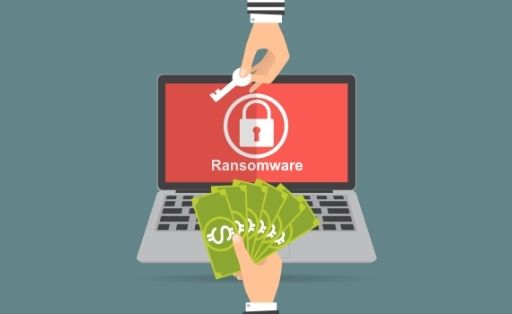One of the most prevalent cybersecurity threats in the world that is making agencies worried about their data is ransomware. It is usually done by independent hacking cells, ex-workers, professional crime syndicates, or so-called hackers. The objective behind this crippling attack is to extort money from people in return for allowing them access to their intellectual property, website, and even basic email.

Contents
What Is Ransomware?
Ransomware is malware that encrypts your private files or blocks your operating system. The cybercriminals who do so, then demand ransom for its recovery. Your computer can either get infected by ransomware in different ways. Few of these include infections from malicious websites, unwanted add-ons in downloads, and spam. Targets of ransomware attacks include both individuals and companies. Mostly they target computers with data that is kept secret and is of due importance. For instance the private hospital and trusted organizations.
Damages from ransomware in 2019 are expected to rise to $11.5 billion and a new organization will fall victim to ransomware every 14 seconds, and every 11 seconds by 2021.
History Of Ransomware
It was used first in 1989. However, the first concrete case was reported in Russia in 2005. Since then, ransomware has spread all over the world, with new types continuing to prove successful. In 2011, the incidence of these attacks increased dramatically. Therefore, demanding the manufacturer of antivirus software to concentrate more on their virus scanners on ransomware, especially since 2016.
Regional differences were often seen in the various ransomware attacks. For example:
- Incorrect messages about unlicensed applications prompting people in trojan to pay money
- False claims about illegal content with a demand of penalty fee
- The largest ransomware attack was in the spring of 2017 and was called WannaCry. In the course of the attack, approximately 200,000 victims from roughly 150 countries were asked to pay a ransom in Bitcoin.
Popular Types Of Ransomware
Some of the most “popular” variants of ransomware include:
- Dharma/Crysis and now Phobos a variant of Dharma
- RYUK
- LockerGoga
- Sodinokibi
- MAZE
Detecting Ransomware
How to know if your computer is infected? Undermentioned are some ways to detect it:
- Anti-virus scanner sounds an alarm – It helps to detect the attack earlier before it has bypassed
- Check file extension – for example, the normal extension of an image file is “.jpg”. If this extension has changed to different unknown letters then your computer might be under attack.
- Name change – The files you saved on your computer will have different names than those you gave them. A clue that the malicious program has encrypted data.
- Increased CPU and disk activity – Another indication is of increased disk or main processor activity signifying that ransomware is working in the background.
- Dubious network communication – software interacting with the cybercriminal may result in suspicious network communication.
- Encrypted files – a late sign of ransomware activity is that files can’t be opened.
Finally, a window containing a ransom demand confirms that there is a ransomware infection. The earlier the threat is detected, the easier it is to combat the malware.
Steps To Combat A Ransomware Attack
Ransomware is generally divided into two types: locker ransomware and crypto-ransomware. A locker ransomware virus locks the entire screen, while crypto-ransomware encrypts individual files. Regardless of the type of crypto Trojan, victims usually have three options:
- You can pay the ransom and hope the cybercriminals keep their word and decrypt the data.
- You can try to remove the malware using available tools.
- You can reset the computer to factory settings.
- You can take help from any cyber intelligence agency, who offers its services assisting in ransomware removal.
It’s better to take preventive measures or be alert about such cybercrimes that can interfere with your privacy.
